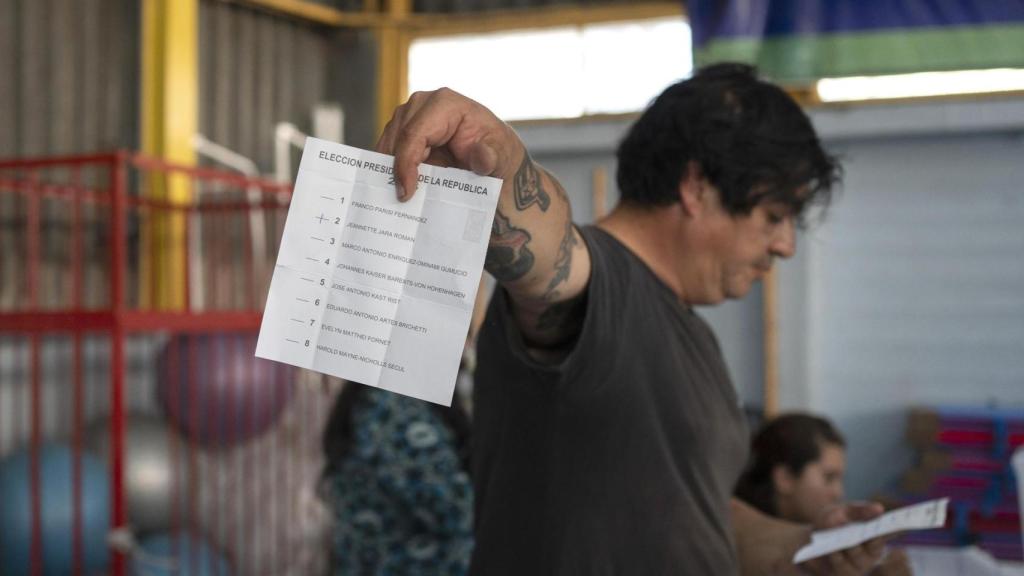The leftist Jeannette Jara and the far right José Antonio Kast will compete for the Presidency of Chile in a second round on December 14, with 52.4% of the votes counted.
According to the preliminary results of the Electoral Service, the former communist minister of Gabriel Boric obtains a 26,6% of the votes, while the former ultra-Catholic deputy achieves a 24,3%. The result is much closer than what the polls predicted before the electoral ban, which gave Jara a victory of over 30%.
The big surprise of the night is the right-wing populist Franco Parisi who, as in the 2021 presidential elections, is in third place, with 18.4% and considerable progress in the mining regions of the north of the country.
The big losers of the day are the far-right libertarian Johannes Kaiserwhom many polls placed even above Kast, and the representative of the traditional right, Evelyn Matthei.
Matthei is the only one who has already come out to acknowledge her defeat after finishing in fifth place. In a brief appearance, he said that he will congratulate Kast in person, although he is reluctant to publicly ask for his support. “We are going to Kast’s command to greet him properly,” said Matthei, who has had friction with Kast during the campaign.
His defeat confirms the decline of the traditional Chilean right, as occurred four years ago, in favor of more extreme candidates.
The big question now is whether, facing the second round on December 14, his coalition will offer its support to Kast, who for decades was a member of the conservative Independent Democratic Union (UDI), one of the parties that make up his coalition.
For his part, from a public statement at the La Moneda palace, the president Gabriel Boric He congratulated Jara and Kast and asked them for “a high-minded debate ahead of the runoff, always thinking about the best for Chile.” “Chile has a healthy democracy, a robust democracy that we cannot stop taking care of every day,” added Boric.

An electoral jury shows a vote in favor of the candidate for the Presidency of Chile for the Unidad por Chile party, Jeannette Jara, this Sunday in Valparaíso (Chile).
EFE
“Hatred, criticizing others and exacerbating fear are not enough to govern a country,” Jara said this Sunday after casting his vote in Conchalí, one of the most humble neighborhoods in Santiago, where he was born and lived part of his childhood.
After learning the results, the leftist candidate stated that Chile is a country “with a lot of future and hope” and asked to take care of democracy so as not to put it “at risk” in the face of the second round.
The elections are held in a context of great electoral fatigue after the successive elections held since the massive protests of 2019 and due to discontent with the management of Boric, whose approval is around 30% and who will leave La Moneda next March.
Since 2006, power has alternated between left and right and no president has handed over the presidential sash to a successor of the same political affiliation.
The more than 15.6 million people called to vote They also elect the entire Chamber of Deputies (155) and 23 of the 25 senators, an election whose counting will begin after the presidential recount and in which the polls predict a considerable advance of conservatism.

